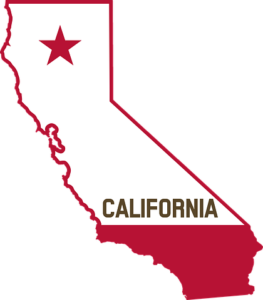 With probate court, the rules and processes differ depending on the deceased’s state of residence. If your loved one lives in California, this is what you should know:
With probate court, the rules and processes differ depending on the deceased’s state of residence. If your loved one lives in California, this is what you should know:
What is Probate?
Probate:
- Provides oversight to the process of property transference.
- Applies to heirs or beneficiaries, to determine if a will is valid.
- Manages the financial obligations and assets of the deceased.
- Takes 9 to 18 months, which could place considerable strain on executors who fail to understand the procedures and legal language involved.
- Can be challenging, even for attorneys, who do not specialize in estate law or who try to operate outside the parameters of their own state.
Skvarna Law in Glendora and Upland, specializes in trusts, wills, estates, elder law and probate cases.
California Probate Law
The $150,000 or Less Rule
In California, a provision gives legal inheritors of a decedent’s property possession of the estate entire. This is if the estate is valued at $150,000 or less. For this provision, more than 40 days must pass after death. In such cases, the inheritor can write an affidavit to transfer ownership. If you opt for this, be careful. Special rules apply for calculating the net amount. And certain categories of items, such as cars or boats, are not allowed in the calculation. If you have questions about this, talk to an experienced estate attorney, such as Vic Skvarna of Skvarna Law. If the estate is valued at more than $150,000, exceptions are not made. The estate must proceed to probate court (unless a living trust or other instrument was in place prior to death).
 The Probate Process
The Probate Process
- Within 30 days of a loved one’s death, the person holding the will or “custodian” must bring the will to the probate clerk’s office and send a copy to the executor in charge of the estate.
- The judge names an “executor,” and an “administrator.”
- A “petitioner” must start a case in court with a “Petition for Probate” within the county where the deceased person resided.
- Different types of petitions, based on whether a will exists, apply
- An estate attorney is invaluable in this instance and throughout the probate process.
- Clerks set a hearing date after attorneys file the probate case.
- Attorneys must prepare, mail and post written notice to anyone affected by the estate (family members and other individuals named in the will).
- Someone must post notice in a general circulation paper.
- The court decides whether to approve or deny the appointment of the executor or administrator.
- Once the court approves an executor, he or she will proceed with various forms and procedures to collect assets, pay off debts, and otherwise follow the wishes of the descendant.
- The court will ask for status reports during this period.
- The court must approve the final accounting report before releasing the executor/administrator from his or her duties.
How to Navigate the California Probate Court Process:
- Organize everything. Probate is a paperwork-intensive process. It requires documentation and complex forms. Secure paperwork, such as death certificates and executor appointments, for easy access upon request.
- Work with an experienced estate attorney. To eliminate costly mistakes, consult with an estate attorney at the beginning of the probate process.
- Discover the deceased’s assets and various obligations. Collect information pertaining to financial and property assets as well as outstanding bills and balances. Probate court requires a final report for each estate.
The Bottom Line about Probate
 Navigating the California probate process is tricky, even for estate attorneys. The easiest way to avoid the complexities is to proactively plan an estate to keep it out of probate. Talk to the experts at Skvarna Law Firm. We mange probate in California or structuring smart estate planning strategies.
Navigating the California probate process is tricky, even for estate attorneys. The easiest way to avoid the complexities is to proactively plan an estate to keep it out of probate. Talk to the experts at Skvarna Law Firm. We mange probate in California or structuring smart estate planning strategies.
Skvarna Law Firm operates offices in Glendora and Upland, California and provides legal services for individuals living in San Bernardino, Los Angeles, Orange and Riverside Counties. This includes the cities of Upland, Ontario, Rancho Cucamonga, Fontana, Colton, Rialto, Chino, Chino Hills, Glendora, Claremont, Pomona, La Verne, Montclair, San Dimas, Azusa, Covina, West Covina, Diamond Bar, Walnut, La Puente, Corona, Norco & Mira Loma. Visit SkvarnaLaw.com to learn more.

